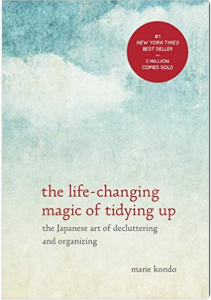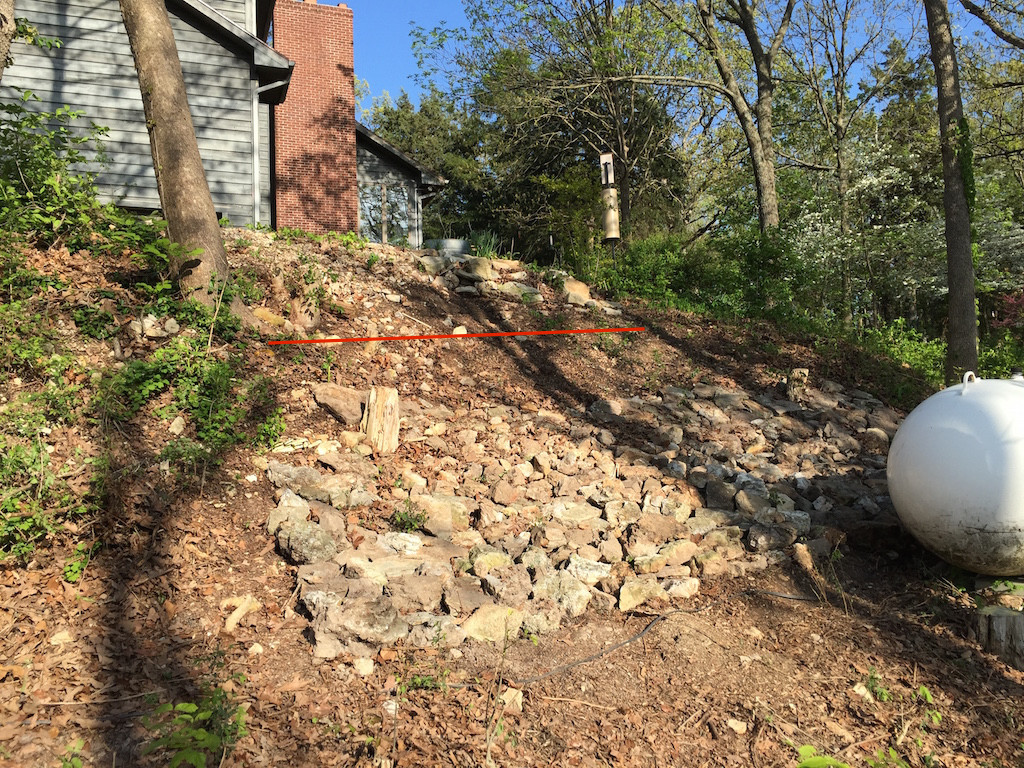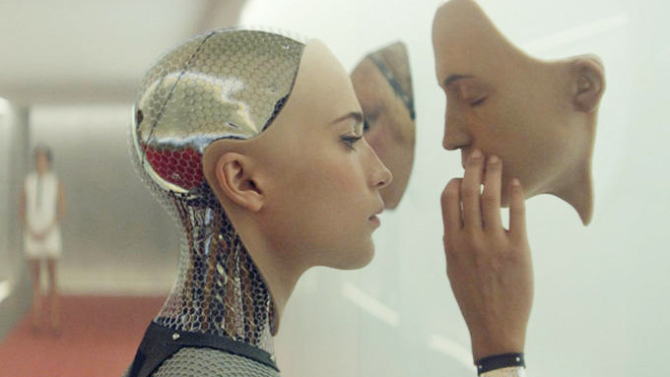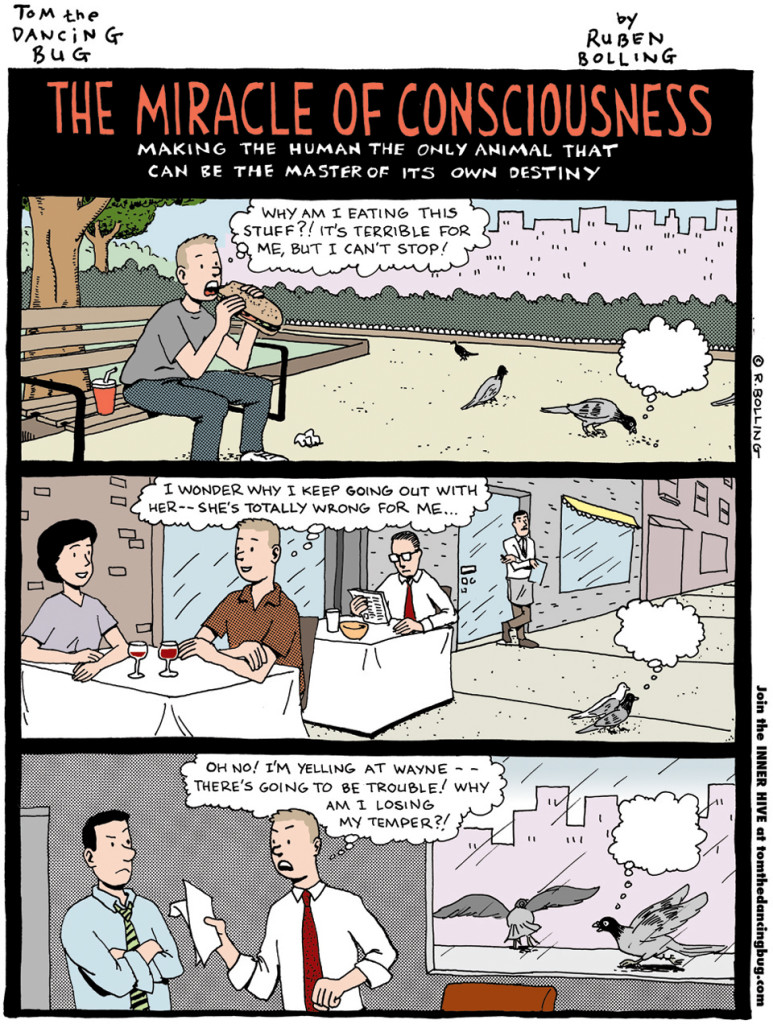Category Archives: Philosophy
The story we keep repeating
“(We) are impressions left by something that used to be here. We have been created, molded, formed by a bewildering matrix of contingencies that have preceded us. From the patterning of the DNA derived from our parents to the firing of the hundred billion neurons in our brains to the cultural and historical conditioning of the twentieth century to the education and upbringing given us to all the experiences we have ever had and choices we have ever made: these have conspired to configure the unique trajectory that culminates in this present moment. What is here now is the unrepeatable impression left by all of this, which we call “me.” […] What are we but the story we keep repeating, editing, censoring, and embellishing in our heads?”
— Buddhism Without Beliefs by Stephen Batchelor
Tidying Up
 The Life-Changing Magic of Tidying Up (“The Japanese Art of Decluttering and Organizing”) by Marie Kondo. If you really, really want to declutter your life (and most people do not), this is the only book you’ll need. More philosophy than how-to and that will turn off many. And here method only works if you do exactly what she says to do, and in the order she says to do it.
The Life-Changing Magic of Tidying Up (“The Japanese Art of Decluttering and Organizing”) by Marie Kondo. If you really, really want to declutter your life (and most people do not), this is the only book you’ll need. More philosophy than how-to and that will turn off many. And here method only works if you do exactly what she says to do, and in the order she says to do it.
I’ve nearly completed her method, only photos remain and I’ll tackle those this afternoon. In the process, I have held in my hand every item I possess. That alone will frighten off most people. But I now see why she believes that is important.
If you’re tired of drowning in stuff, read this book. If not, keep swimming. A few excerpts:
Tidying: deciding whether or not to dispose of something and deciding where to put it.
When your room is clean and uncluttered, you have no choice but to examine your inner state.
Tidying is just a tool, not the final destination. Putting things away creates the illusion that the clutter problem has been solved. But sooner or later, all storage units are full. This is why tidying must start with discarding.
People who can’t stay tidy can be categorized into just three types: “can’t-throw-it-away” type; “can’t-put-it-back” type; and the “first-two-combined” type.
You only have to experience a state of perfect order once to be able to maintain it. Examine each item you own, decide whether you want to keep or discard it, and then choose where to put what you keep. […] You only have to decide where to put things once.
Discard things when they cease being functional. Discard things that are out of date.
Take each item in one’s hand and ask: “Does this spark joy?” If it does, keep it. If not, dispose of it. […] You must take each (item) in your hand.
Always think in terms of category, not place. (Don’t organize by room!)
In addition to the physical value of things, there are three other factors that add value to our belongings: function, information, and emotional attachment.
Start with clothes, then move on to books, papers, komono (miscellany), and finally things with sentimental value.
Put all your clothes in one heap, take them in your hand one by one, and ask yourself quietly, “Does this spark joy?”
There are two storage methods for cloths: one is to put them on hangers and hang from a rod and the other is to fold them and put them away in drawers.
Store things standing up rather than laid flat. […] Never ball up your socks.
Remove all books from your bookcases. You cannot judge whether or not a book really grabs you when it’s still on the shelf.
The problem with books that we intend to read sometime is that they are far harder to part with than the ones we have already read. […] “Sometime” never comes. You may have wanted to read it when you bought it, but if you haven’t read it by now, the book’s purpose was to teach you that you didn’t need it.
My basic principle for sorting papers is to throw them all away.
People never retrieve the boxes they send “home.” Once sent, they will never again be opened.
If you just stow things away in a drawer or cardboard box, before you realize it, your past will become a weight that holds you back and keep you from living in the here and now.
The reason every item must have a designated place is because the existence of an item without a home multiplies the chances that your space will become cluttered again. […] The essence of effective storage is this: designate a spot for every last thing you own.
There are only two ways of categorizing belongings: by type of item and by person. [page 138]
Clutter has only two possible causes: too much effort is required to put things away or it is unclear where things belong.
Keep everything out of the bath or shower. Whatever is used in the bath should be dried after use.
A deluge of information whenever you open a closet door makes a room feel “noisy.” […] By eliminating excess visual information that doesn’t inspire joy, you can make your space much more peaceful and comfortable.
At their core, the things we really like do not change over time. Putting your house in order is a great way to discover what they are.
When we really delve into the reasons for why we can’t let something go, there are only two: an attachment to the past or a fear for the future.
The question of what you want to own is actually the question of how you want to live your life. […] The best way to find out what we really need is to get rid of what we don’t. […] Selecting and discarding one’s possessions is a continuous process of making decisions based on one’s own values.
Reincarnation
I wrote this in 1988. I was 40 years old and I don’t recall what prompted this musing. I’ve done a fair amount of reading on eastern philosophies in the past 30 years and my thinking/understanding has evolved. But only a little.
Reincarnation. The word conjures up all sorts of mystical images. While I don’t recall any past life as a soldier at the Little Big Horn, it’s sort of like “the undiscovered planet” that makes sense of the orbits of the other planets.
As I think about the idea of a past existence, I feel a fondness for this “earlier me”. A sense of gratitude for whatever spiritual progress he was able to achieve. At the same time, I feel a sense of anticipation or expectation for my “next life”. And some responsibility to that future self. I’d like to move him (or her?) along as far as I can on this “cosmic lap.” To move him closer to…a perfect consciousness? Nirvana?
Mixed in with all of that is a sense of relief that I don’t have to complete everything in this lifetime. This is not the only shot I’ll get. And this awareness is vital because we all know –consciously or subconsciously– that we won’t “get it all done” in a spiritual sense. We hope (and work) for progress but a single lifetime seems hopelessly short.
So, how close am I? What if I’m only a single lifetime (only?) away from reaching this level of consciousness? Suppose I progress sufficiently in what I have left of this lifetime that I’m within “striking distance” in the next?
It’s possible I’m on my first “existence” and have many to go. Or I might have lived thousands of lives and have but a few remaining. The point is, it doesn’t matter where you are on this journey. There’s no race and no time limit. You finish when you finish and everybody finishes. And that’s a liberating thought. There’s no Heavenly Stopwatch ticking away. No point at which you must throw in the towel and face the fact you’11 never be “good enough” to get through those Pearly Gates. Eternity is not pass-fail.
Most of us fear death. We fear the unknown… what might be waiting for us. Most Western theology offers only heaven or hell. Or nothing. Poor choices, all.
What if we’re just as frightened of “being born” as we are of dying? Once you accept the idea that our souls or spirits or consciousness do not die, but are eternal, you can imagine how frightening it might be to face being born into a new existence. There is symmetry here that feels right. If my soul or consciousness is eternal, can it really be that it magically sprang into existence at the moment of my conception? One instant it didn’t exist, the next it did? It came from nowhere, out of nothing? No. I think eternity stretches in both directions.
I wish I could tell the “earlier me” that things worked out fine. There was nothing to fear. I don’t remember “dying” or being born and this life has been terrific. And why not assume the “next me” will do just as well? And will be a little more spiritually evolved thanks to the progress “this me” is making.
Why don’t (most of us) remember our “past lives?” I think it would be an awful distraction. Our purpose is to live each moment of this life fully. To grow through each day’s experience. Not to dwell on and puzzle over a life already lived. Lessons already learned. So we remain unaware of past and future lives, focused on the only life we can ever really live, this one.
And what about Heaven? Can it really be the cosmic end-of-the-line we’ve been taught? Have you ever really believed in this Sunday School heaven with streets of gold and God sitting on his judgment throne? Isn’t there more hope, more promise, in the ongoing spiritual journey?
As for Hell, we are all quite capable of creating our own, anytime, anywhere. And we do.
The idea of timeless existence fills me with a wonderful sense of anticipation. If, after 40 years, I’ve learned to stop worrying, does that mean I can go on to new challenges in this life (and the next)? If I’ve lived a life afraid to take chances, to risk, for fear of failure, will I conquer that fear next time? Can I take the spiritual progress f this life on to the next one? It seems right, doesn’t it?
And equally logical that I’ll take unsolved challenges with me as well. But how many people do you know who expect to leave their enemies behind when they go to “their reward”. Smug in the knowledge those enemies are now paying for their sins.
No, I think He or She would say, “Don’t talk to me about right or wrong, your job is your own spiritual growth. As long as you feel hate, or anger, or guilt, or worry… keep working on it. And to help you, I’ve got a limitless number of real-life situations for you to practice on.”
Does this mean I can coast through this life, dodging spiritual challenges, procrastinating on into eternity? I don’t think so. I’d love to hit that next life free and clear (to the extent that is possible). Unencumbered. I want to put worry and fear and self-doubt behind me now. I want the “next me” to have every opportunity for continued growth. Let’s drop some of this baggage. God knows how many lifetimes I’ve been hauling it (for those who need another reason for not recalling past lives).
The idea of the spirit or consciousness living on past what we call death raises the question of friends and loved ones living (again) among us. Should be sad we don’t recognize them nor they us? No.
First, they have new lessons to learn and new people and experiences will help. In our own lives we tend to find and remain in comfort zones. We do the same things, with the same people, throughout most of our lives. Only when we force ourselves (or are forced) into new situations, do we see real growth and progress. It would be like staying in the first grade for 12 years. We know the teacher and our classmates and the lessons. It’s safe and comfortable. But instead, we are forced to move on to new schools, new rooms, new teachers and classmates, new lessons. Secondly, and perhaps even more importantly, there is a unity of all consciousness. The essence of each of us, exists in all of us. That essence is part of the reborn consciousness of friends and loved ones. One more lesson: Look for and recognize the things we loved about that person, in all people.
Opinions
“In general, an opinion is a judgment, viewpoint, or statement about matters commonly considered to be subjective. What distinguishes fact from opinion is that facts are verifiable, i.e. can be objectively proven to have occurred.” (Wikipedia)
So here’s my question: Do you choose your opinions? Do you have control over your judgments and viewpoints? If, for example, you are of the opinion that the Green Bay Packers are the best NFL team, could you choose to have a different opinion on the matter?
If you answered YES, I have a follow-up question. Can you choose to have NO opinion on a topic? That sounds much harder. If I sit down next to you and say: “Abortion,” you probably have an opinion on that topic almost instantaneously. How would it be possible for you to decide NOT to have an opinion on that topic? When might such a decision have been made? To me it feels like opinions happen to us, rather than something we do.
At this point some of you A students are thinking: “Sure, my opinions are emergent, but they’re the result of all the reading and thinking and information gathering I’ve done throughout my life.”
Granted. But it sounds to me like we don’t have any control over our opinions. At least not in the moment. So choosing not to have an opinion… any opinion… is out of the question. An opinion happens to you like Psoriasis. And yet, our opinions play a huge role in our identity. “I’m who I am because I believe these things.” But you didn’t decide to believe those things and you couldn’t decide to believe something else if I put a gun to your head.
The more I think about it, the more worthless opinions — yours and mine — seem. Could I go all day without expressing an opinion? For one hour?
“Do not seek the truth; only cease to cherish opinions.” — Seng-ts’an
One rock at a time

I recently had our propane provider move our tank from where it had been sitting for the past 30 years to a less visible (from the house) location. I noticed that the rocks that once covered the slope down from our driveway had rolled/washed/worn away and decided replace them. No shortage of rocks on our property. The red line shows my progress to date. This task turned out to be much harder than I expected. I have a wheelbarrow but quickly discovered that it’s easier to move one rock at at time, by hand. Doesn’t look like I have much hill left but that might take five or six hours. Searching for Zen? Here it is.
Update: May 6, 2015. Task completed.

Let’s make them better than human
 Golly. I don’t know where to begin. I really enjoyed the film Ex Machina but that tells you next to nothing. Certainly the best treatment of AI I’ve seen on screen. There were a few moments reminiscent of Blade Runner. When Rachael realized her childhood memories were implanted; when Roy went to see his creator, Dr. Tyrell. But I found this a fresh and thought-provoking story.
Golly. I don’t know where to begin. I really enjoyed the film Ex Machina but that tells you next to nothing. Certainly the best treatment of AI I’ve seen on screen. There were a few moments reminiscent of Blade Runner. When Rachael realized her childhood memories were implanted; when Roy went to see his creator, Dr. Tyrell. But I found this a fresh and thought-provoking story.
If you’re that guy that kept pointing out why the flux capacitor was just a made up thing and couldn’t be used for time travel, yeah, you’ll probably find lots of _flaws_ in the tech of this movie. And now you know why it took you sooo long to get laid. Given half a chance, I’m quite willing to suspend my disbelief and did so for this movie.
What does it mean to be almost but not quite human? When we have the technology, will we be able to scrape enough ‘goodness’ to create beings better than ourselves?
When I’m really absorbed in a story I sometimes forget to breath for a few seconds. I was a little light headed by the end of Ex Machina.
Invisible Atheists
“In today’s Arab world, it’s not religiosity that is mandatory; it’s the appearance of it.”
“Religion is a form of surveillance. It’s not about God; it’s about the power wielded by those who act in his name.” Habib, Willoughby, and many others have switched to atheism as an act of rebellion. But their rebellion is less against Islam than against the abuses committed by religiously powered individuals and political systems.”
“Despite the risks and the social and political challenges they’re facing, all the atheist activists I interviewed said they were confident that the future of the Arab world belongs to secularism. Willoughby told me that “atheism is spreading like wildfire” in the Middle East. Brian Whitaker views it as “the symptom of a much bigger thing, which is the battle against oppression.”
How to make bad days okay
“A human life is too vast, too rich and varied in content, for any given day’s events to be critical to the whole thing. Therefore, our willingness to be calm in the face of day-to-day unsettledness is much more important than the specifics of what is so unsettling about right now.”
“This is true even of the big, permanent events: deaths, losses, diagnoses and breakups. A death, for example, is clearly permanent, but it is your relationship to that event that gives it meaning, and that relationship is not at all permanent. It will change fairly rapidly, in fact. It will be quite different a week later, and very different a year later. And by then, it will be someone slightly (or greatly) different who is experiencing it. You don’t have to bear the weight of the entire catastrophe today. Other days, and other Yous, will split the burden, in ways you perhaps can’t see from here.”
The Simulation Game
“Each individual believes that he or she is living in a world that really exists. The point of SG is to provide clues to the pieces that this is not so and see when they realize they are in a simulation. We considered inserting some obvious clues into their stream of experience, such as sky writing that says “This all a simulation—you are being fooled”, but that was deemed a bit too obvious, even taking into account the limited intelligence of the pieces. To make the game more interesting, and to net the greatest gambling revenues, we decided to make the clues subtler, though of course any of our species would recognize them immediately. We have therefore arranged it so that the world they experience is incoherent and unintelligible—quite literally impossible. This is not so clear on the surface, but in the game it is meant to be gradually revealed, as they apply their limited intelligence to the appearances.”
More about The Simulation Game »

